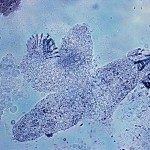About
Host signalling molecules are particularly targeted by pathogens as an efficient way to interfere with multiple host pathways. Microbes evolved different strategies to hijack host cell signalling pathways: bacteria and viruses control host signalling kinases, whereas parasites excrete their own signalling kinases. Despite these differences, pathogens, mostly bacteria and viruses, tend to directly regulate similar host pathways through interactions with similar host proteins, suggesting that there is a signature for host cell subversion during infection. Even though parasitic pathogens equally efficiently subvert their host cells, no direct comparative study has been performed to identify common pathways of subversion and only little is known on parasite effectors and their host targets. We propose to identify the host pathways regulated during parasite infection focusing on cell signalling to establish a host cell-signalling signature for parasite infection. We will study two very distant intracellular parasites: Leishmania donovani (kinetoplastids) and Eimeria tenella (apicomplexa), and two parasitic effectors: LdCK1.2 and EtROP1. We have preliminary data suggesting the importance of parasitic excreted kinases on host cell subversion. Our group has previously demonstrated the essential role of LdCK1.2 for intracellular parasite survival, the impact of Leishmania infection on the proteome of macrophages and identified the host interacting partners and substrates of LdCK1.2 highlighting pathways such as apoptosis or cellular trafficking. In parallel, the group of Dr Anne SIlvestre has investigated the role of EtROP1 in Eimeria infection and identified the host interacting partners and candidate substrates of EtROP1, involved into apoptosis and cell cycle pathways. The aim of this project is to identify common mechanisms used by parasites to regulate host cell signal transduction, validate their importance for parasite survival and determine the implication of LdCK1.2 and EtROP1 in these regulations. We are applying systems-level analyses on L. donovani and E. tenella infection: phospho-proteomic to assess the short-term impact of parasites on host cell signalling regulations, and transcriptomic to assess the long-term consequences of host signalling subversion on cellular phenotype and functional analysis of candidate host signalling targets and their downstream pathways to determine their importance for intracellular parasite survival. Studying very divergent host-parasite systems will reveal the basic mechanisms that govern host cell subversion and establish the host cell-signalling signature for parasite infection.







